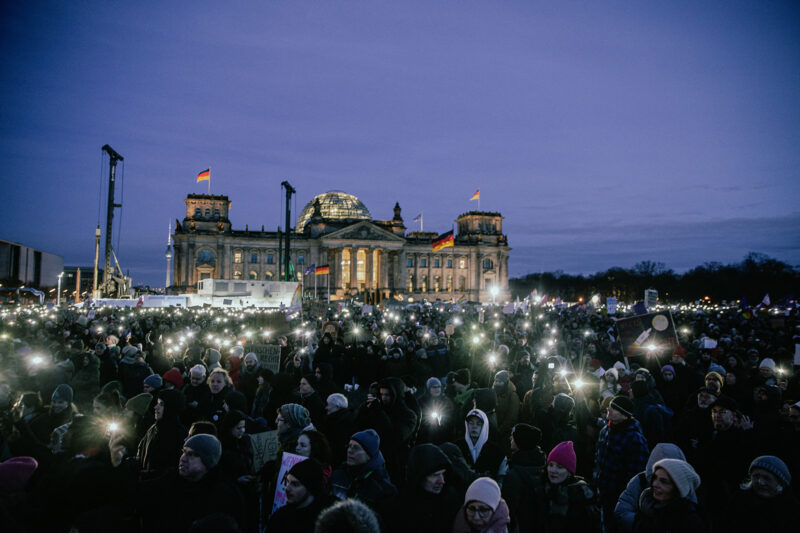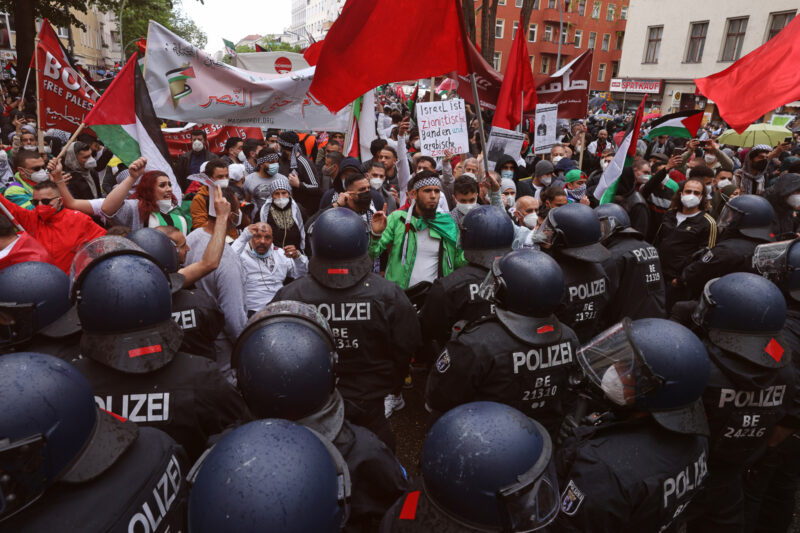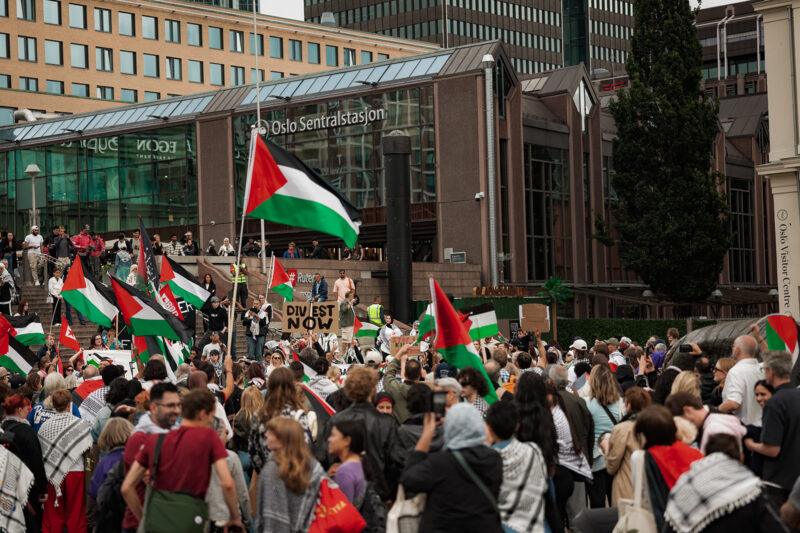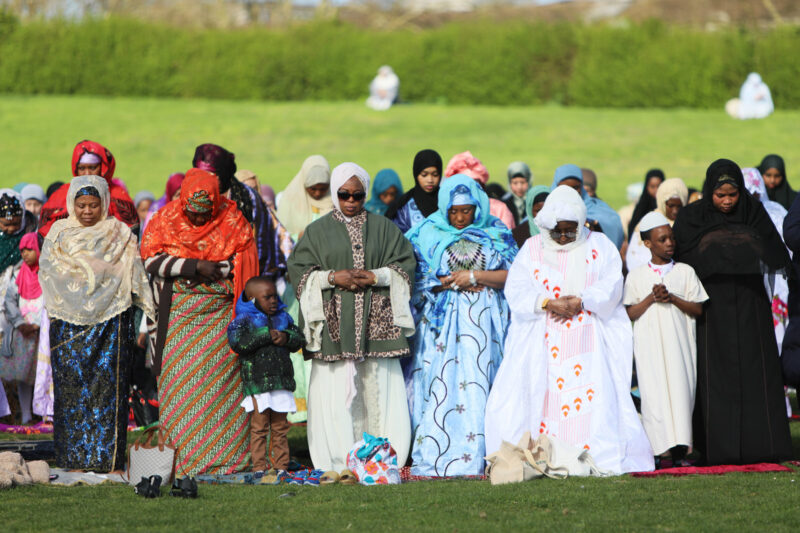Legal ordeal just strengthened my resolve to speak out, says German pro-Palestine activist
Ava Moayeri is among nearly 3,000 people investigated by Berlin police on suspicion of crimes relating to pro-Palestine activism
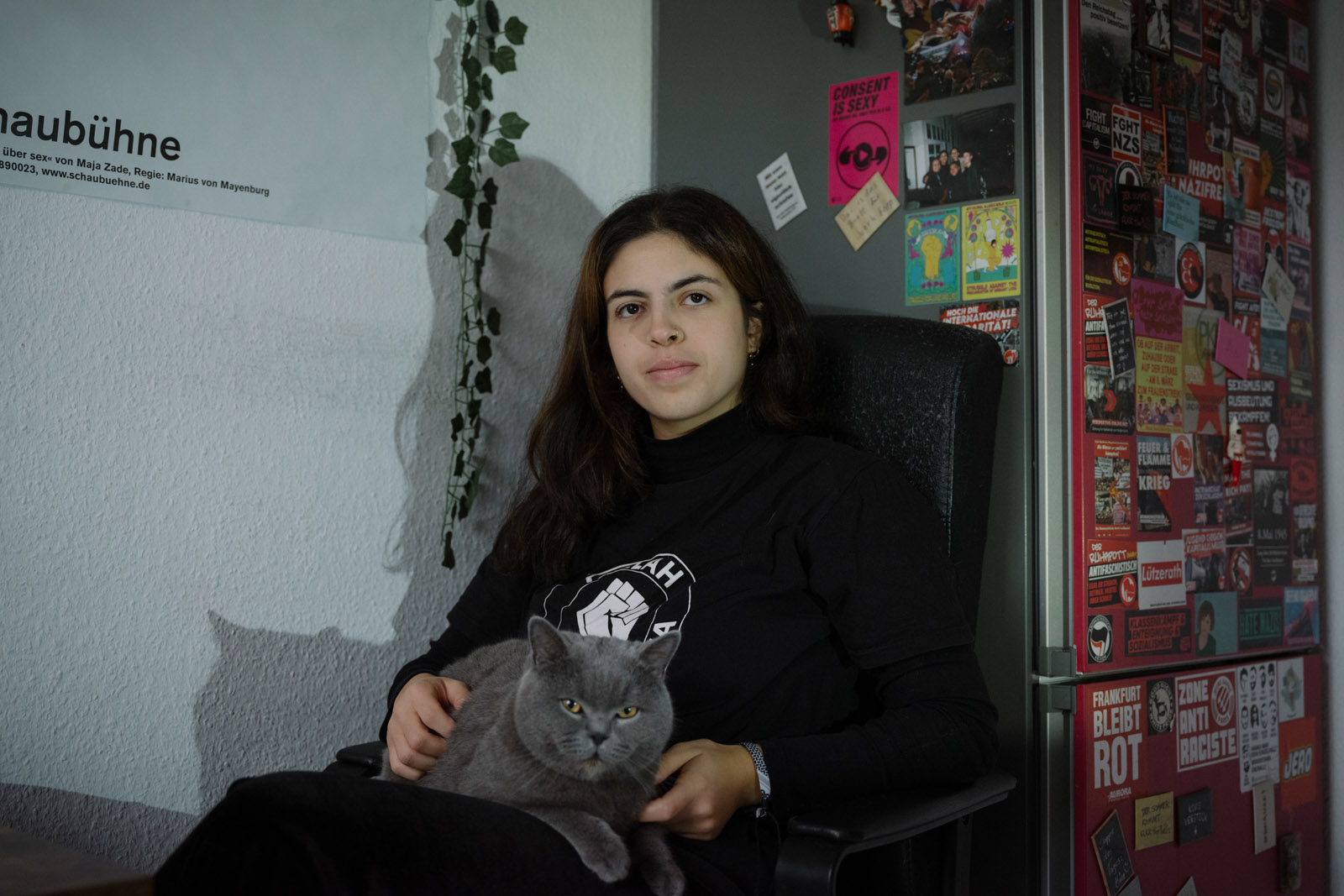
When Ava Moayeri, 22, arrived at a protest in support of a child who had allegedly been beaten by a teacher for holding up a Palestinian flag outside a Berlin high school in October 2023, there were 50 or so people already gathered, many of them students. “I saw the police were already trying to disband everyone, and I immediately got angry,” Moayeri recalled. So she started an impromptu chant of a phrase she had shouted at multiple demonstrations over the years: “From the river to the sea, Palestine will be free!”
Immediately, two police officers approached and arrested her on suspicion of mass instigation of hate speech. Moayeri thought there must have been a mistake. Ten months later, she stood in a courtroom and was handed a €600 fine for starting the chant in a case that has sparked intense debate over the state of free speech in Germany and the treatment of pro-Palestinian activists.
The horrors of the Holocaust continue to exert a powerful influence on both domestic and foreign policy in Germany. Scholar Daniel Marwecki argues in his book Germany and Israel that the solidarity between the two countries serves as “a form of reconciliation that seeks to cleanse Germany of antisemitism, which time and again seems to creep back into view”. Following 7 October, however, observers worry that this historical commitment has been used to justify a crackdown on activists, artists and scholars that violates constitutional rights to free speech and assembly.
Alexander Gorski, a partner lawyer from the European Legal Support Centre who represented Moayeri, said that while there have been crackdowns on pro-Palestinian protest across Europe, the repression in Germany has been more widespread and more aggressive. He is particularly concerned about threats to activists’ immigration status.
“We have people who are facing expulsion orders for social media activity,” he said. “We’ve had people who don’t get their visas renewed because of pending criminal procedures. People’s lives are made hard, and then most aren’t even deported in the end.”
In Berlin alone, nearly 3,000 pro-Palestinian protestors have been investigated on suspicion of crimes including support for terrorist organisations, having liked or shared social media content or used certain phrases at protests. “People don’t tend to go to jail,” Gorski said. “And the fines they eventually get in the criminal court are not very big.” But the process, he said, “is almost like psychological warfare”. There have also been multiple cases of artists and scholars losing funding and having public events cancelled.
Moayeri was born in Aachen in western Germany to Iranian communist parents who had fled political persecution. “Growing up, there was an expectation that I would be politically active too,” she said. When she moved to Berlin to study social work three years ago, she became involved with a grassroots feminist collective, Zora, which campaigns on issues including violence against women.
Immediately after 7 October, demonstrations were called around Germany to protest against Israel’s military retaliation. The majority were banned, in a move later ruled unconstitutional. When people decided to ignore the bans and gather, police were alleged to have responded with brutality. In August, Amnesty International called for an independent investigation into an incident at a protest in Berlin.The demonstration outside the school that Moayeri attended had also been banned despite organisers lodging an official application. “I spoke to the parents and the students. They were so upset and so confused about what was happening and why they were being censored,” said Moayeri, explaining how the anger she felt caused her to start her chant.
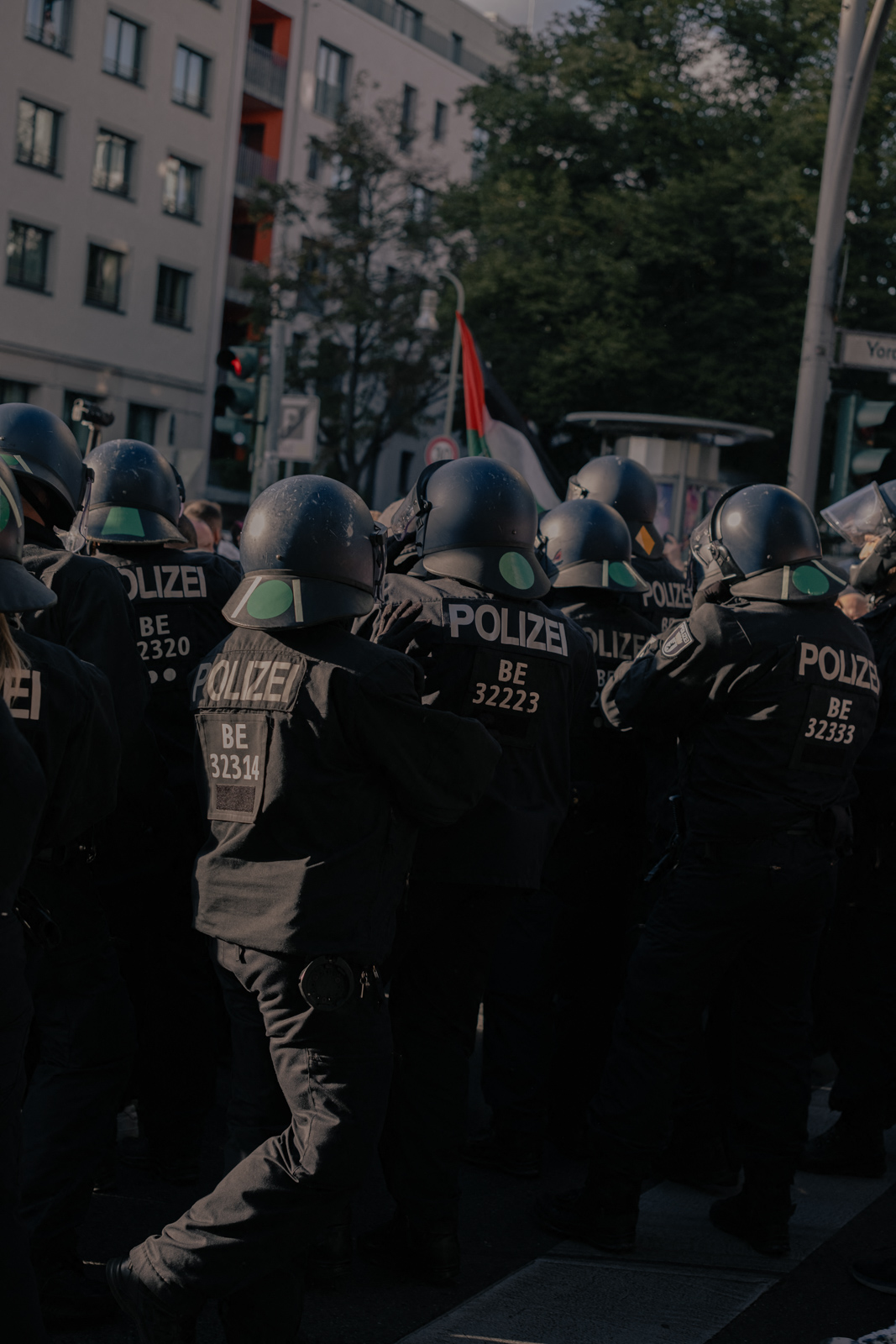
There is fraught debate around the slogan “from the river to the sea”, which refers to the stretch of land between the river Jordan and the Mediterranean Sea incorporating Israel and occupied Palestinian territory. Some interpret it as a call for the state of Israel to be abolished and say this is antisemitic; others argue it represents hope for an independent Palestinian state. The Berlin prosecutor’s office announced two days after Moayeri’s arrest on 13 October that chanting it was a punishable offence.
Police released Moayeri a few hours after her arrest, but her ordeal wasn’t over. Zora had published a flyer on its social media framing the crisis in Palestine from a feminist perspective. It laid out the group’s opposition to Hamas and its support for the Popular Front for the Liberation of Palestine (PFLP). The PFLP is a secular Marxist Palestinian organisation that supports a one-state solution and is designated a terrorist organisation by the EU.
In December 2023, two months after her arrest, Moayeri learned that her apartment and those of her fellow activists had been raided by police. Zora was under investigation for distributing terrorist propaganda. The group’s office was searched and their computers and other electronic devices confiscated. One member said she was beaten by police — in response, Berlin police said they handcuffed and restrained people who were present and any injuries sustained would have been lawful. “It’s a difficult feeling, knowing the authorities now have their eyes on us,” Moayeri said.
Moayeri was eventually only charged for her chant at the protest. The prosecution’s argument was that because the demonstration took place so close to 7 October, she was condoning the Hamas attacks. On the advice of her legal team, she pleaded guilty. The judge’s ruling contradicted other judgments in similar cases, which concluded the phrase was ambiguous and could not be directly interpreted as support for Hamas. No charges have been brought against Zora to date, but police have not returned the group’s seized electronic devices. Gorski believes cases such as these, in which drawn-out legal processes result in no charges, are being used to crush protesters psychologically.
Moayeri is glad her ordeal is over but is rethinking the safety of activists expressing their right to free speech in Germany. Over the past year, the national discourse has become more openly Islamophobic and far-right parties have made huge gains. Recent social media videos show pro-Palestinian protesters in Berlin and Hamburg being beaten by police.
“I was always distrusting of the state but now it definitely feels like a massive assault on civil rights,” she said. “Now I feel more scared that I could be attacked by a fascist. How come I could not say ‘from the river to the sea’, but neo-Nazis can chant ‘foreigners out’ with impunity?”
However, Moayeri believes the crackdowns may actually be making the protest movement stronger. “I couldn’t believe how many people turned up at court to support me,” she said. “There’s such a strong sense of solidarity amongst activists that it doesn’t feel like police violence can hurt us any more.”
 Newsletter
Newsletter



